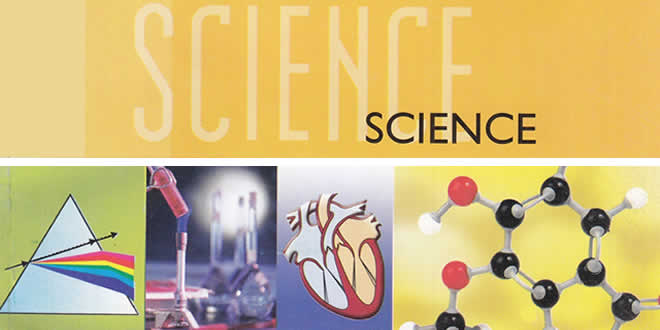Periodic Classification of Elements MCQs: CBSE Class 10 Science Chapter 5 Periodic Classification of Elements Multiple Choice Questions with Answers. MCQ Questions for Class 10 Science with Answers was Prepared Based on Latest Exam Pattern. Students can solve NCERT Class 10 Science Periodic Classification of Elements Multiple Choice Questions with Answers to know their preparation level.
| Class: | 10th Class |
| Subject: | Science |
| Chapter: | Chapter 05: Periodic Classification of Elements |
| Quiz: | – Questions |
| MCQs: | 25 Questions |
Periodic Classification of Elements MCQs
Class 10 Science Periodic Classification of Elements MCQs with Answers & Explanation:
1. Newlands relation is called
(a) Musical Law
(b) Law of Octaves
(c) Periodic Law
(d) Atomic Mass Law
Answer 1.
2. Upto which element, the Law of Octaves was found applicable?
(a) Oxygen
(b) Calcium
(c) Cobalt
(d) Potassium
Answer 2.
3. In Mendeleev’s Periodic Table, gaps were left for the elements to be discovered later. Which of the following elements found a place in the Periodic Table later?
(a) Chlorine
(b) Silicon
(c) Oxygen
(d) Germanium
Answer 3.
4. At the time of Mendeleev, the number of elements known was
(a) 63
(b) 65
(c) 62
(d) 64
Answer 4.
5. The properties of eka-aluminium predicted by Mendeleev are the same as the properties of later discovered element:
(a) Scandium
(b) Germanium
(c) Gallium
(d) Aluminium
Answer 5.
6. An atom of an element has the electronic configuration 2,8,2. To which group does it belong?
(a) 4th group
(b) 6th group
(c) 3rd group
(d) 2nd group
Answer 6.
7. The arrangement of elements in the Modem Periodic Table is based on their
(a) increasing atomic mass in the period
(b) increasing atomic number in the horizontal rows
(c) increasing atomic number in the vertical columns
(d) increasing atomic mass in the group
Answer 7.
8. Where would you locate the element with electronic configuration 2, 8 in the Modern Periodic Table?
(a) Group 8
(b) Group 2
(c) Group 18
(d) Group 10
Answer 8.
9. Element ‘X’ forms a chloride with the formula XCl2, which is a solid with high melting point. X would most likely be in the same group of the periodic table as:
(a) Si
(b) Mg
(c) Al
(d) Na
Answer 9.
10. Which of these belong to the same period?
(a) A, B
(b) B, C
(c) C, A
(d) A, B and C
Answer 10.
Explanation: Reason. B= 10 (2, 8), C = 5 (2, 3) Both have 2 periods.
Periodic Classification of Elements MCQs: 10 Science Ch 5
11. Carbon belongs to the second period and Group 14. Silicon belongs to the third period and Group 14. If atomic number of carbon is 6, the atomic number of silicon is
(a) 7
(b) 14
(c) 24
(d) 16
Answer 11.
12. Pick out the chemically most reactive elements from the given triads.
Li, Na, K F, Cl, Br
(a) Li and F
(b) Li and Br
(c) K and F
(d) K and Br
Answer 12.
13. What is the atomic number of element of period 3 and group 17 of the Periodic Table?
(a) 10
(b) 4
(c) 17
(d) 21
Answer 13.
14. Which one of the following statements is not correct about the trends in the properties of the elements of a period on going from left to right?
(a) The oxides become more acidic
(b) The elements become less metallic
(c) There is an increase in the number of valence electrons
(d) The atoms lose their electrons more easily
Answer 14.
15. The elements A, B and C belong to groups 1, 14 and 17 respectively of the Periodic Table. Which two elements will form ionic compounds?
(a) A and B
(b) A and C
(c) B and C
(d) None
Answer 15.
16. An element X from group 2 of the Periodic Table reacts with Y from group 17 to form a compound. Give the formula of the compound.
(a) XY2
(b) XY
(c) X2Y
(d) (XY)2
Answer 16.
17. A metal ‘M’ is in the first group of the Periodic Table. What will be the formula of its oxide?
(a) MO
(b) M2O
(C) M2O3
(d) MO2
Answer 17.
18. Name the neutral atom in the Periodic Table which has the same number of electrons as K+ and Cl-.
(a) Helium
(b) Argon
(c) Neon
(d) Krypton
Answer 18.
19. An element X combines with oxygen to form an oxide XO. This oxide is electrically conducting. Write the formula of the compound formed when X reacts with chlorine.
(a) XCl3
(b) XCl
(c) XCl2
(d) XCl5
Answer 19.
Periodic Classification of Elements MCQs – 20. An element X has mass number 40 and contains 21 neutrons in its atom. To which group of the Periodic Table does it belong?
(a) Group 1
(b) Group 4
(c) Group 2
(d) Group 3
Answer 20.
Explanation: Reason. e = 19 (2, 8, 8, 1)
21. Consider the following elements
20Ca, 8Or 18Ar, 16S, 4Be, 2He
Which of the above elements would you expect to be in group 16 of the Periodic Table?
(a) 20Ca and 16S
(b) 20Ca and 8O
(c) 18Ar and 16S
(d) 8O and 16S
Answer 21.
22. An element ‘A’ belongs to the third period and group 16 of the Periodic Table. Find out the valency of A.
(a) Valency = 6
(b) Valency = 2
(c) Valency = 1
(d) Valency = 3
Answer 22.
23. Which one of the following statements is not correct about the trends in the properties of the elements of a group on going down in a group?
(a) The chemical reactivity of metals increases.
(b) The metallic character of elements increases.
(c) The size of the atom increases.
(d) The valence electrons increase.
Answer 23.
24. Which of the following set of elements is written in order of their increasing metallic character?
(a) Na Li K
(b) C Q N
(c) Mg Al Si
(d) Be Mg Ca
Answer 24.
Periodic Classification of Elements MCQs – 25. The atom of an element has electronic configuration 2, 8, 7. To which of the following elements would it be chemically similar?
(a) N(7)
(b) P(15)
(c) Na(11)
(d) F (9)
Answer 25.
Explanation: Reason: Both have same number of valence electrons
 Class Notes NCERT Solutions for CBSE Students
Class Notes NCERT Solutions for CBSE Students





